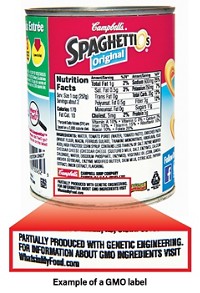Advertisement
Grab your lab coat. Let's get started
Welcome!
Welcome!
Create an account below to get 6 C&EN articles per month, receive newsletters and more - all free.
It seems this is your first time logging in online. Please enter the following information to continue.
As an ACS member you automatically get access to this site. All we need is few more details to create your reading experience.
Not you? Sign in with a different account.
Not you? Sign in with a different account.
ERROR 1
ERROR 1
ERROR 2
ERROR 2
ERROR 2
ERROR 2
ERROR 2
Password and Confirm password must match.
If you have an ACS member number, please enter it here so we can link this account to your membership. (optional)
ERROR 2
ACS values your privacy. By submitting your information, you are gaining access to C&EN and subscribing to our weekly newsletter. We use the information you provide to make your reading experience better, and we will never sell your data to third party members.
Environment
U.S. Senate advances bill on labeling genetically modified food
Measure would prohibit states from enacting their own laws
by Britt E. Erickson
July 8, 2016
| A version of this story appeared in
Volume 94, Issue 28

The U.S. Senate was ready to vote on a bill to establish a national standard for labeling foods that contain genetically modified organisms (GMOs) as C&EN went to press last week. Passage would pave the way for Congress to block states from requiring such labels.
If the bill gets Senate approval, lawmakers will need to work out differences between the legislation (S. 764) and a GMO labeling measure (H.R. 1599) passed by the House of Representatives last year. The House bill would establish a voluntary program under the Department of Agriculture to certify that foods do not contain GMOs.
The Senate bill, on the other hand, would give companies the option to label products that contain GMOs in one of three ways: text on the packaging, a USDA-designed symbol, or an electronic barcode that consumers could scan with a smartphone to get more information.
Both bills would immediately stop states from enacting their own GMO food labeling laws. In the absence of a federal standard, some states have passed such laws with varying requirements. The first went into effect in Vermont on July 1.
The food industry and farm groups support the Senate bill and the creation of a national GMO food labeling standard, claiming that a patchwork of state laws leads to inconsistent information and higher food prices.
Environmental and food safety activists, organic food producers, and some Democrats oppose the bill, claiming that many genetically modified products would be exempt from the labeling rules. “The novel definition of ‘bioengineering’ under the bill would exclude from labeling a vast number of current foods produced with genetic engineering,” a coalition of advocacy groups wrote in a June 27 letter to senators.
The measure would exempt foods that contain modifications found in nature, “those in which technology cannot as yet detect the novel genetic material, and foods made with non in vitro recombinant DNA techniques,” the coalition warns.





Join the conversation
Contact the reporter
Submit a Letter to the Editor for publication
Engage with us on Twitter